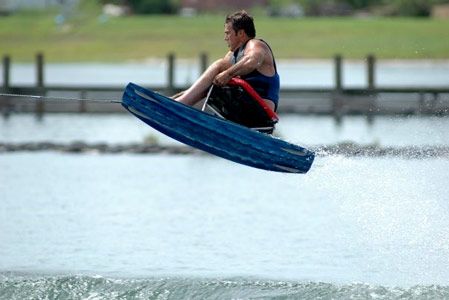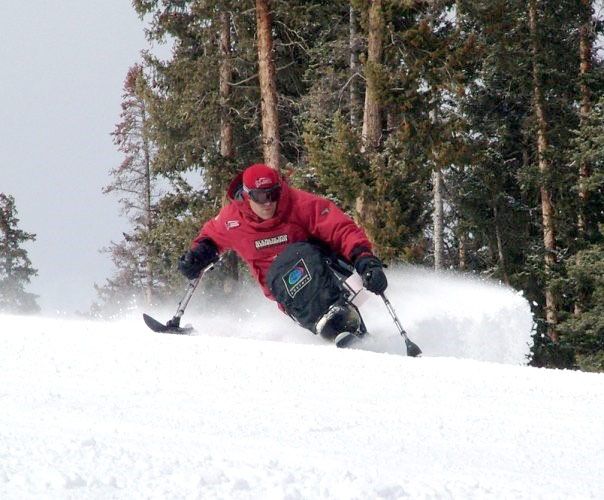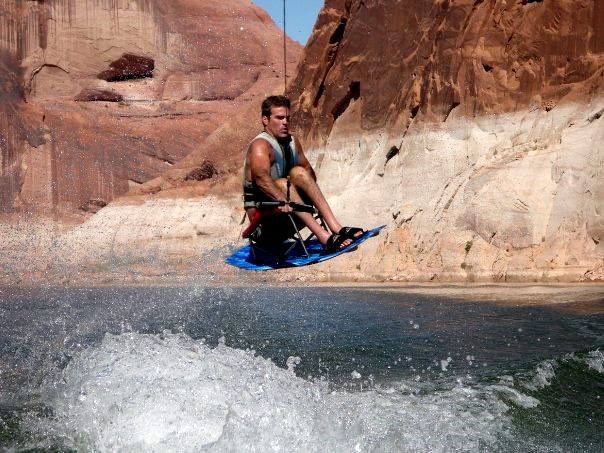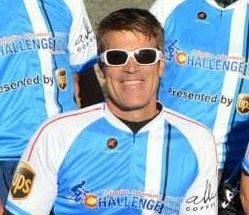“Choose a job you love and you will never have to work a day in your life.” These words coined by Confucius, an influential Chinese philosopher are wonderful sentiments. However, it is quite a challenge knowing whether or not you love a job until you actually get into it.
Athletics in My Blood
Growing up, I was involved in all kinds of sports. At some point, I even considered sports as a life-long career. I remember when I was only 10 wagering my sister that I would play in the National Football League when I became of age. Well, that’s the beauty of a young soul, the only limit of your dreams is your imagination. Mine was becoming a professional athlete.
Unsurprisingly, I attended university on an athletics scholarship. It had dawned on me that however much I loved sports, I would have to go down an academic path that would mould me into my career, or so I thought.
My College Life
I did not really know what I wanted to major in at the university, neither did I know what I wanted to do in life. I therefore chose a university, based not on academic grounds but on the lifestyle. I settled on Fort Lewis College, a liberal arts college in Durango, Colorado. 25 miles off campus was the Purgatory Resort, home of the Purgatory ski area. More so, there was a golf course at the university. When I went to check out the campus, I was met with some rather awesome news. I overheard someone say that one could go skiing and get a degree in their free time.
I was in love with my life at the university. The experience was just amazing. I tweaked my schedule so that I could go skiing a whole four days in a week! I also learned mountain biking and played some golf. What can I say, I was in love with sports! I was sad to have to say goodbye to the campus. I graduated with a Degree in Business Administration, went back home in Denver to begin my job search.
Over the course of the next few years, I worked several jobs including in the insurance industry as an agent. During this time, I realised what I did not want to do with my life rather than what I wanted. Working in corporate America, not what I wanted. I was however, discovering my path.
1988, summer. My friends and I go on a trip, a trip that would be a major turn-around in my life. It would change my career path and my life as a whole.

The Leap That Changed my Life
We drove to Lake Powell, southern Utah. I took a dive into the water from a somewhat high cliff, a dive that would change my life completely. Upon hitting the water, I broke the 9th thoracic vertebra in my back. I was instantly paralysed from the mid-abdomen down. I could not walk again. I was barely 25 when it happened. My mind went on overdrive. However, instead of thinking about my future, family or career, my first thoughts were whether I would be able to be a sportsman anymore. “What sports can I do now?” This question kept bugging me all through. I had lost the physicality demanded by most sports.
I went to rehab to try wrapping my head around the tragedy that had befallen me. While there, I went into deep reading. I read a lot of books and articles on living a life with spinal cord injuries, trying to figure out what life would be moving forward. The only sports I could participate in were adaptive sports, and they didn’t look as engaging to me. I therefore decided to focus on landing a job, move on with life and bid farewell to sports, my long time love.
Several interviews in and I finally landed a job valuating securities at a trust company in Denver. I loved my new job and my job mates but still I felt incomplete. There was something missing, I didn’t quite feel accomplished. One day, a friend’s friend called me. He was a volunteer at the National Sports Centre for the Disabled (NSCD) in Winter Park. He asked me whether I was interested in learning how to ski again. It was only 8 months since my injury and I still had metal rods in my back. Doctor’s advice: Wait a year before engaging in activities that may threaten the stability of my back. Sadly, I could not enrol, so we made plans to ski the following season. I recall not sleeping that night. The idea of being able to ski again was all I could think of. I woke up the following morning and called him up. I was going to risk it! We set a date to ski the following week.

Back on My Ski
With my condition, the only way I could ski was by using a mono-ski. It was quite difficult learning especially now that I had lost most of my core muscles. A mono-ski is a single ski mounted on a metal frame with a seat and a shock absorber. Outriggers are attached at the bottom and are in contact with the snow and are used in manoeuvring the ski, pushing on the flats, and loading the chairlift. Mono-skiing demands a lot of strength and balance, both of which I lacked at the time. I must confess, I thought about quitting at some point but the thought of being an independent skier once again kept me going. Plus, what would everyone think? That I am a quitter? No way! I had to do this. I kept the persistence, stronger by the day, until finally I was a skier again.
From time to time, I would ski, especially during weekends, but that could not still suffice my thirst for skiing. One day during the Fall, sitting in my office, I thought to myself, “Is this my destiny?” At that very moment, I felt the need to be elsewhere, somewhere I was not bound by four walls, sitting behind a computer all day. That was not my place. I tendered my resignation, packed my bags on moved to the mountains.
My plan: Try ski racing. Winter Park had a five day weekly training program and I planned to enrol. Using some savings and with support from the firm I had just quit, I got to ski racing and I enjoyed a few years of success. However, ski racing was not what I desired. It felt confining, binding. Free skiing was what I wanted, so I often found myself powder skiing or skiing in the trees rather than the race course. Slowly, I was falling back in love with my long lost love, skiing.
From time to time, I would ski with my able bodied mates and they would push me to my limits, skiing in terrain that someone with my disability ordinarily could not. They waited for me as I struggled. However, sometime later, I got the hold of the terrain and I glided down to the bottom of the run. Looking back, my mates were only halfway down the run. What a wonderful moment that was! Learning how to ski, I did not picture in my wildest imagination that I would be a good a skier as I was before my accident. But it was happening, right before my very eyes. I felt free, independent. I had to share this feeling with others.
A ski coach position opened up at the NSCD the following season so I handed in my application and landed the job. A job where all I had to do is run the “sit ski” program and co-ordinate 300 volunteer instructors. I loved my new job since it was really rewarding although it did not pay very well, and it was a part-time job so I got time to do other stuff off-season ranging from scuba diving, water skiing, hand cycling and off-road wheelchair racing. It came to my realisation that all the activity made me healthier and happier.
I felt content with my job but there was a slight hiccup, it was seasonal. There was no way I’d stay on the job during summer so I had to figure out a way to get people involved in all-year-long outdoor sports. Sports that would enlighten them and make them realise the benefits of a healthy lifestyle. It was then that I saw the need for a new progressive sports organisation. A little research on adaptive sports for people with disabilities and I was set to go.

Adaptive Adventures
I thought to myself “Why not create a career instead of constantly looking for one?” I therefore got together with one of my mates and created Adaptive Adventures. It was a non-profit organisation aimed at expanding adaptive sports across the US. Our philosophy was to bring people from around the country, provide them with information on adaptive sports while creating a learning, sharing and socialising environment for them. In the summer, we had events like boat trips, water skiing and multi-day bike riding. We set up a youth program and another one for injured soldiers.
18 years down the line and Adaptive Adventures is serving thousands of physically challenged lads from over 30 states. A lot of programs have been developed so far, from cycling, climbing, water and snow skiing to kayaking, scuba diving and sailing.
With Adaptive Adventures, I have seen with my very eyes the life-changing impact that outdoor sport has on people who thought sports impossible for them.
I must agree, it took me a while before I came to the realisation that I could turn my love for sports into a career, and a rewarding one for that matter. However, if I went back in time, I still would not change a thing about the journey. It is through the journey that I met many inspiring people, got to really appreciate sports and felt motivated to set up Adaptive Adventures. I must say, I feel accomplished. There’s still time for my life to take a whole new direction but I do not see it taking a different course, I am where I am supposed to be! Not only did I find a career that I love, I moulded one myself!
About the wager, I guess I owe my sister a few quid. I will be sure to send her a cheque.
About the Author

My name is Matt Feeney, from Colorado. I am an athlete. In 1988, I suffered a spinal cord injury and got paralysed from the mid abdomen down. Since then, I have managed to become a certified water and snow ski instructor, a decorated hand cyclist and a two-time off-road downhill champion. In 1999, I was the proud co-founder of Adaptive Adventures. In 2005, I was named Colorado’s Adaptive Athlete of the Year. Finally, over and above that, I am a survivor.
